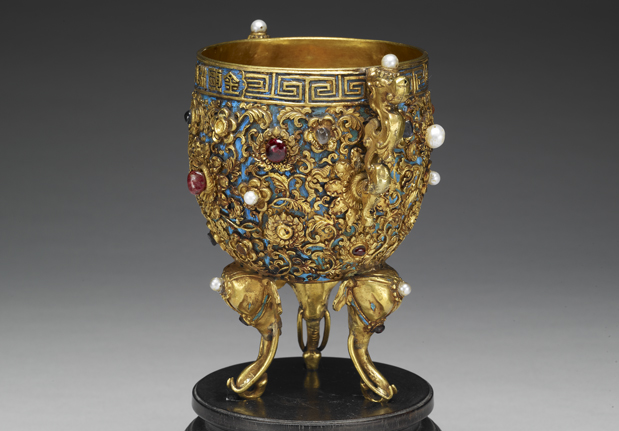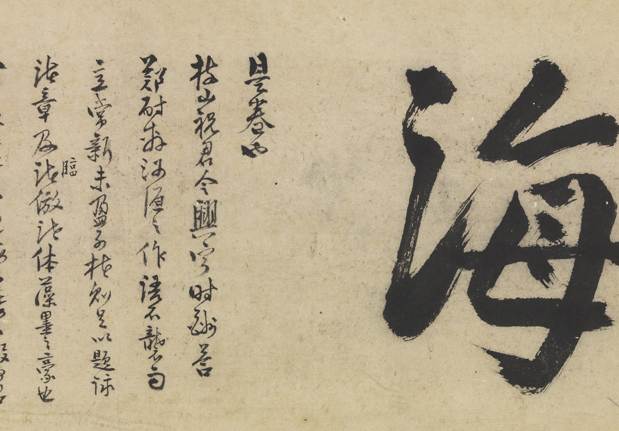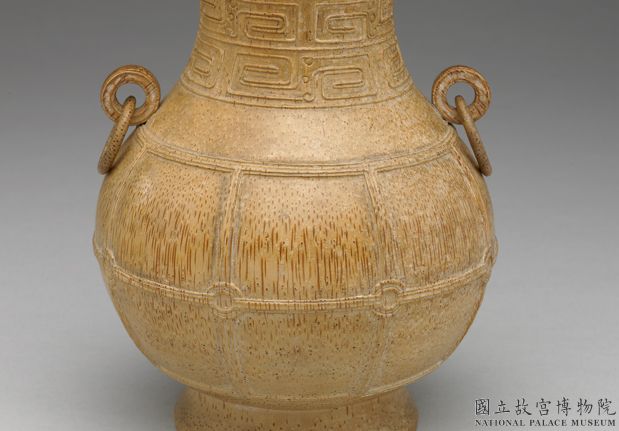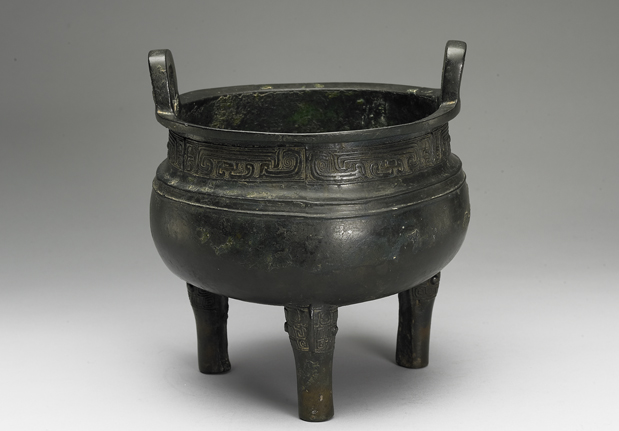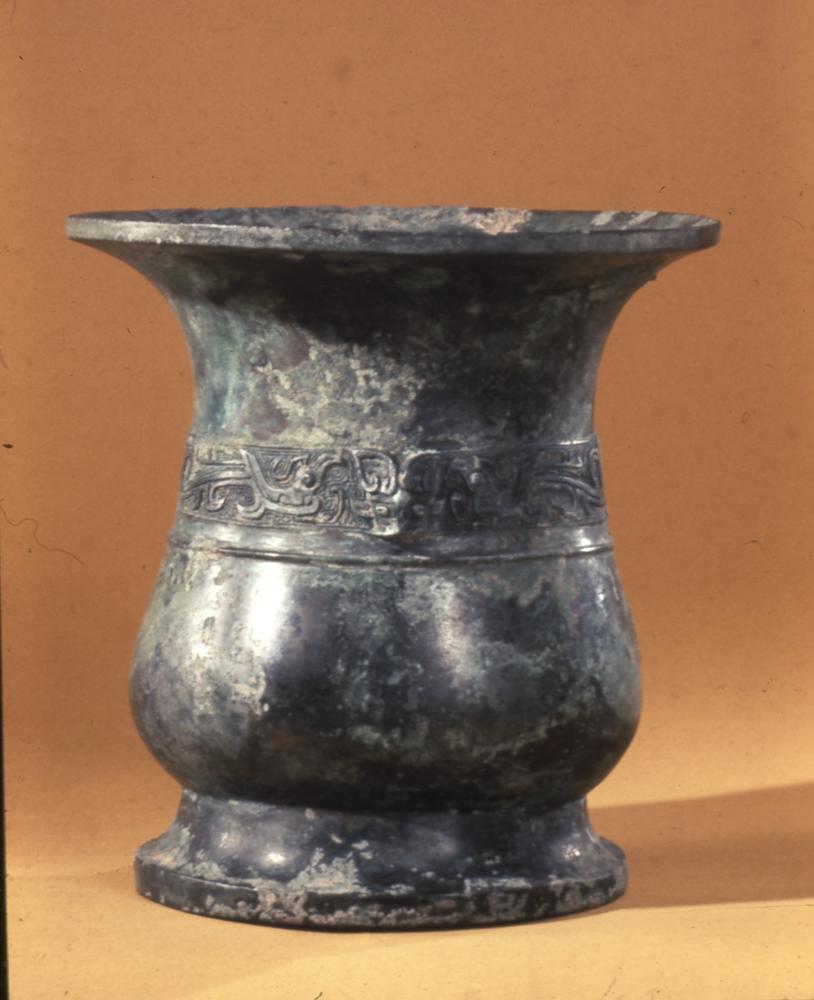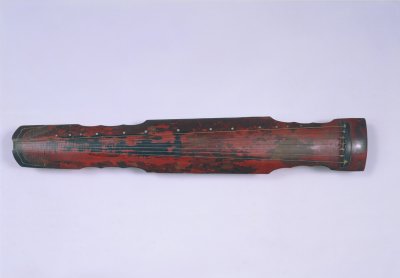Period:Ming dynasty Production date:1620-1911 (circa)
Materials:stoneware
Technique:glazed, painted, slipped, underglazed,
Subjects:horse/ass landscape
Dimensions:Diameter: 18 centimetres Height: 22.50 centimetres
Description:
Cizhou-type jar with underglaze brown painted decoration on a cream slip beneath a yellowish glaze. This Cizhou-type stoneware jar has a short inwardly tapering neck with a wide mouth and four loops joining the neck to the jar; the sides narrow towards the foot. The loops would originally have been used to secure a cover. Crackled glaze and slip cover the inner neck and body to just over 3 cm above the base. Cloudy patches of slip have turned pinkish beige during firing. This slip is ill-fitting and has been worn away at the mouth and in places around the shoulder. Painted on one face is a galloping horse flying through a landscape, which is suggested by just a few brush strokes. The horse is painted in shades of iron brown beneath the glaze, with dark brown body and yellowish-brown mane and tail. On the other side in the same palette is an as yet unidentified plant. The base of the jar is neither glazed nor slipped.
IMG
![图片[1]-jar BM-1936-1012.41-China Archive](https://chinaarchive.net/Ming dynasty/Ceramics/mid_00254516_001.jpg)
Comments:Harrison-Hall 2001:Such coarse jars, although once numerous in China when they were used for storing foodstuffs, are rarely seen in public collections and very few have been published. An identical jar from the Seligman Collection is now in the Victoria and Albert Museum, London. A similar jar, but with a design of fish, is in the Asian Art Museum, San Francisco.
Materials:stoneware
Technique:glazed, painted, slipped, underglazed,
Subjects:horse/ass landscape
Dimensions:Diameter: 18 centimetres Height: 22.50 centimetres
Description:
Cizhou-type jar with underglaze brown painted decoration on a cream slip beneath a yellowish glaze. This Cizhou-type stoneware jar has a short inwardly tapering neck with a wide mouth and four loops joining the neck to the jar; the sides narrow towards the foot. The loops would originally have been used to secure a cover. Crackled glaze and slip cover the inner neck and body to just over 3 cm above the base. Cloudy patches of slip have turned pinkish beige during firing. This slip is ill-fitting and has been worn away at the mouth and in places around the shoulder. Painted on one face is a galloping horse flying through a landscape, which is suggested by just a few brush strokes. The horse is painted in shades of iron brown beneath the glaze, with dark brown body and yellowish-brown mane and tail. On the other side in the same palette is an as yet unidentified plant. The base of the jar is neither glazed nor slipped.
IMG
![图片[1]-jar BM-1936-1012.41-China Archive](https://chinaarchive.net/Ming dynasty/Ceramics/mid_00254516_001.jpg)
Comments:Harrison-Hall 2001:Such coarse jars, although once numerous in China when they were used for storing foodstuffs, are rarely seen in public collections and very few have been published. An identical jar from the Seligman Collection is now in the Victoria and Albert Museum, London. A similar jar, but with a design of fish, is in the Asian Art Museum, San Francisco.
© Copyright
The copyright of the article belongs to the author, please keep the original link for reprinting.
THE END
